Let's be...Frank
Gretna Gardeners and Soldiers Field: A community engagement Q&A with Frank Gentile
Frank, you're helping to launch Gretna Gardeners as a way to "work together to maintain and improve the Chautauqua common areas." Can you say more about this? How did this come about? What's the vision here?
Absolutely. For the past three years, Lorrie and I have been volunteering with a great group of people under the direction of Jeanette Leid. We worked on maintaining the Community gardens within the restrictions we were given. Now that we have earned a degree of trust with Bill Care, we have been freed up to accomplish much more. The long-range vision for the Gretna Gardeners is to work toward the removal of invasive plants and replanting areas of our gardens within an ecologically designed process.
What can volunteers expect? What kinds of activities will Gretna Gardeners take on? We assume there will be some weeding involved. But we suspect that prospective volunteers will also be wondering whether they get to spend quality time with you, learning from your experience and insights.
The plan going forward is to emphasize gardening. Yes, we will still have to weed. But we can learn along the way. Which plants are weeds? Which perennials and shrubs are invasive, and which are native? Learn when it is appropriate to prune along with pruning techniques and seasonal garden care.
At our most recent event, we divided existing hostas, whose environment had changed due to the removal of a tree. We replanted the divisions in a more appropriate environment while tripling the number of plants. In the future, we hope to be installing new plantings, as needed, that are aesthetically pleasing and appropriate for the setting.
Gretna Gardeners: Interested in lending your support? Let Frank and the team know.
You're also helping to lead an effort at Soldiers Field. In a prior Chautauqua Talk post, John Weaver invited volunteers to join you in early November for a work session to identify and remove invasive species and also in February to scatter the wildflower seed. Can you tell us more about that effort? Also, what's the response been? Do you have room for more volunteers?
The goal of Phase One is to create a "beautiful native meadow for historical reference, community enjoyment, ecological/wildlife value, and self-guided learning." We have been referring to this as a "wildflower meadow." However, it is much more than that. It is an "ecological meadow restoration" utilizing native seeds from local ecotypes.
In November, we will be working on the physical removal of select ecologically underperforming species in the mowed area, utilizing hand tools.
In February, we will overseed the 0.75 acre meadow area.
Signups have gone well but we would love more volunteers. I feel there is a natural crossover between this group and the Gretna Gardeners.
You are becoming well-known and appreciated in the community for your knowledge and insights on gardening. But not everyone knows your background. How did you come to know what you know?
After graduating from college, I ended up working for a chemical company whose products were herbicides and growth regulators. I lasted four years while taking Horticulture & Landscape Design courses at night. In order to “atone for my sins," I began adding plants to the environment rather than eliminating them. I worked on landscape crews, managed greenhouses, as a landscape designer, grower of perennials for wholesale (Apple Hill Nurseries), and taught landscape contracting for a short time at Temple University. I eventually started Apple Hill Garden Design, where we designed and installed sustainable landscapes throughout the Philadelphia suburbs.
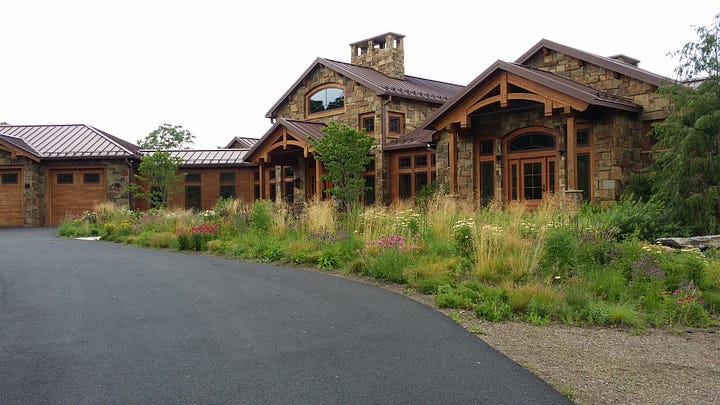
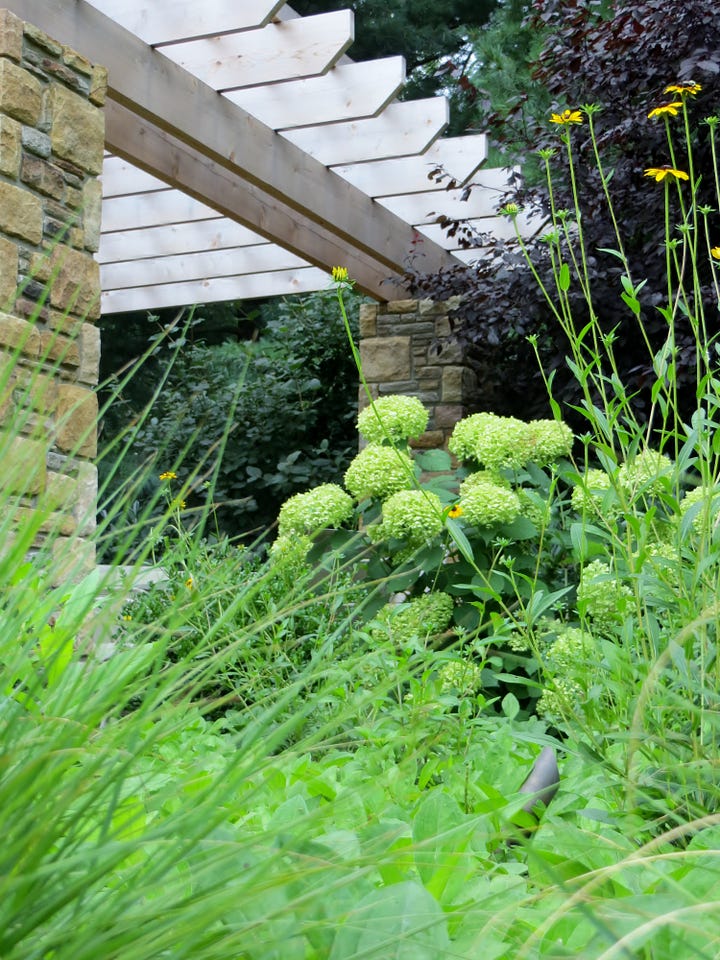
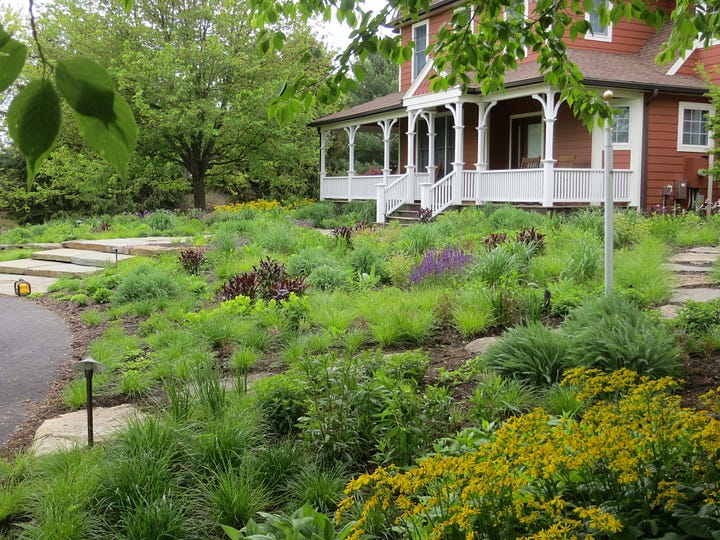
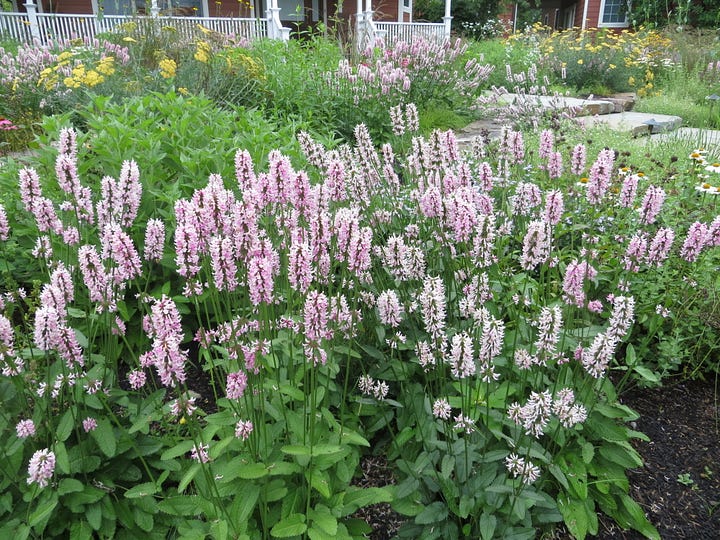
What are some of the most common practical tips or advice you offer in our community? Where do you see the biggest opportunities for your neighbors to invest their gardening resources (dollars, time, and energy) more productively?
Work toward removing any invasive plants on your property and replacing them with natives. Common invasive shrubs in our area are Honeysuckle, Privet, Barberry, Burning Bush, and multiflora roses. Add trees in open areas. Plant shrubs to create an understory and plant perennials as ground covers. Not all shade plants will do well. Look for plants that take dry shade.
We can't let you go without asking about your Mount Gretna story. What brought you and Lorrie here? What keeps you here?
Lorrie and I would go on 3-night 4-day trips throughout the Northeast and New England. The requirements were the area had to have hiking trails and a rail trail. I stumbled upon this area when I researched the Lebanon Valley Rail Trail. Googled Mount Gretna and said, "What the heck is this place?” Came for the first time with our kids and their kids. Then came back with bikes and rented a place. We spent three years checking out houses and deciding if we were indeed ready to move. Pulled the trigger three years ago and have never looked back. This place is magic! We had never experienced such a sense of community. We love the seasonality with the changing rhythms of activity. Great people, too!
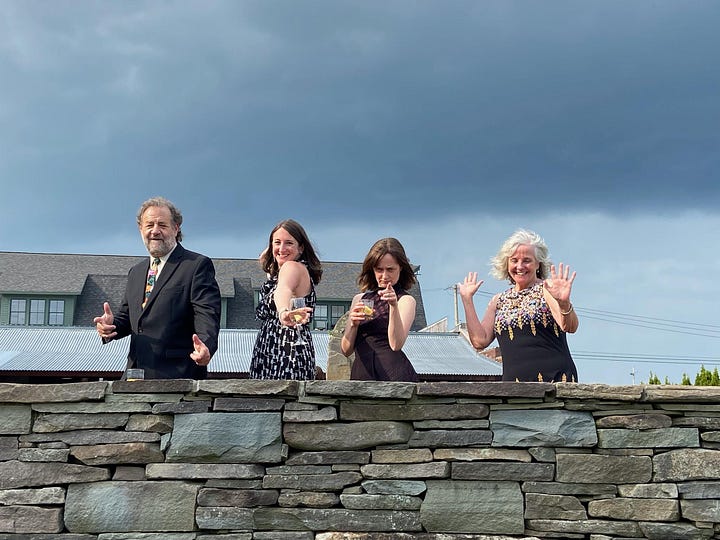
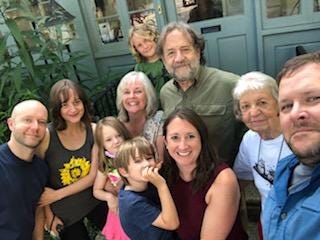
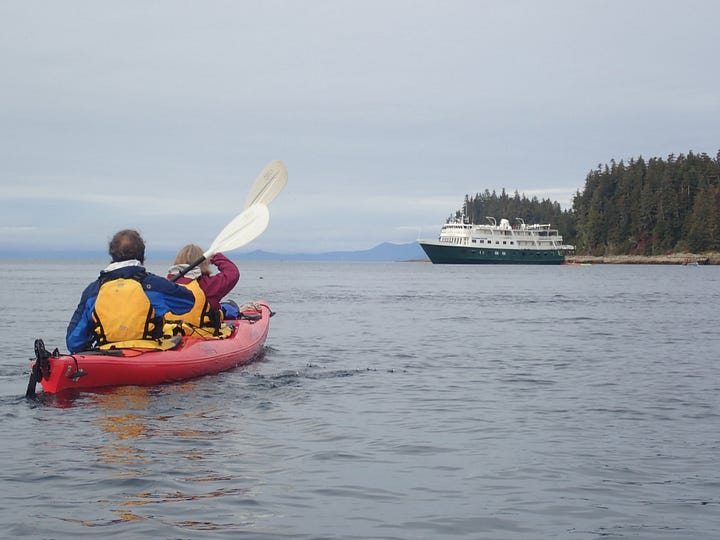
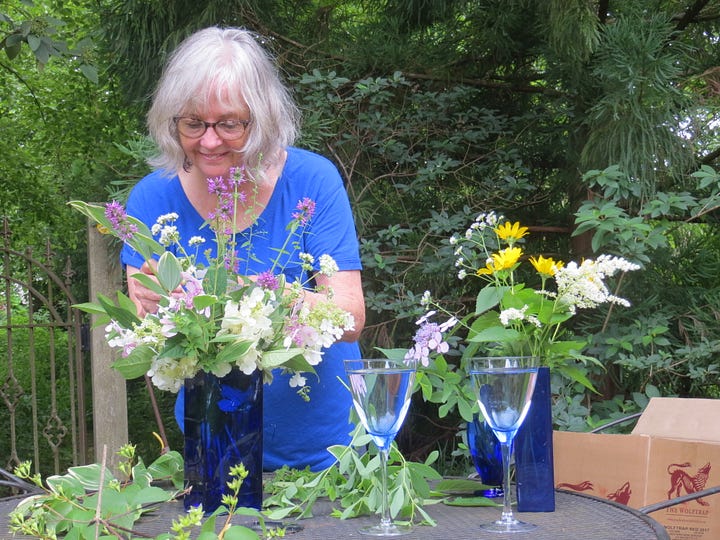






Frank and Laurie are the Best!
I was lucky enough to walk longwood gardens with him and absorbe his knowledge. Oh and his wife is a good dancer! Great article!
Very nice write up Frank! Lorrie and Frank are great neighbors!